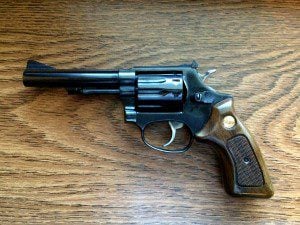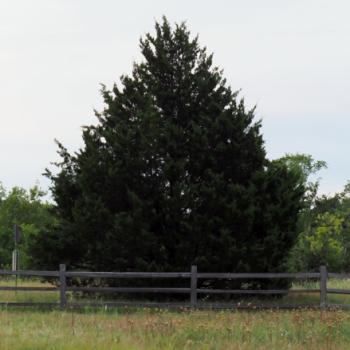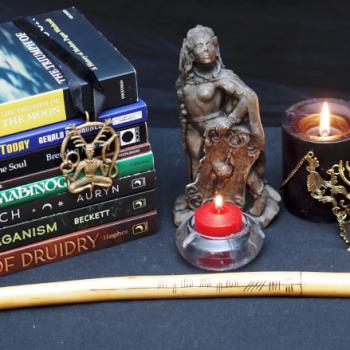 There comes a time when a smoker realizes cancer is no longer a possibility, it’s a reality. There comes a time when a person, a marriage, a community, or a nation is so far down a path that their fate is sealed. There comes a time when a mission is no longer about rescue, it’s about triage. Too many wrong seeds have been planted – the wrong harvest will be reaped.
There comes a time when a smoker realizes cancer is no longer a possibility, it’s a reality. There comes a time when a person, a marriage, a community, or a nation is so far down a path that their fate is sealed. There comes a time when a mission is no longer about rescue, it’s about triage. Too many wrong seeds have been planted – the wrong harvest will be reaped.
Such is the fate of the United States of America when it comes to guns.
On Thursday we saw yet another mass shooting. While everyone is rushing to either assign blame or claim victim status, this shooter appears to be a random loser looking to go out in a blaze of glory. President Obama made an impassioned speech about how this has become commonplace and how we refuse to pass common sense gun laws. Conservatives made their predictable call for even more guns.
And let’s not forget that while mass shootings get big headlines, almost 10,000 people have been killed with guns in the United States so far this year.
I’m reminded of the H. L. Mencken quote (a slight reworking of his actual words) “For every complex problem there is an answer that is clear, simple, and wrong.” Neither liberal gun banners nor conservative open carry advocates have a workable plan. There is no workable plan. We have planted too many seeds of guns and we cannot stop the harvest of gun violence.
Guns are part of America’s heritage. The frontiersman’s long rifle. The cowboy’s six shooter. The bootlegger’s Tommy gun. The GI’s M1 Garand. The gangster’s Glock. Guns have been a part of American culture since the first colonists. They’re in our history, in our art – and in our homes.
There’s never been a time when I wasn’t around guns. My father loved to hunt – there were always shotguns and rifles on the gun rack in the hall. The ammunition was in the cabinet underneath. I learned how to shoot at a very young age, but I don’t ever remember anyone warning me about the danger of guns. It wasn’t necessary – I knew exactly what they could do if they weren’t handled consciously and responsibly. To this day, if you hand me a gun the first thing I will instinctively do is check to see if it’s loaded, even if you assure me it’s not.
The vast majority of gun owners are responsible. The statistics are clear: if you own a gun, you are far more likely to be shot with it than to shoot someone in self defense. Owning guns makes you less safe, not more safe. But most people think they’re the exception to that rule – and so do I. I’ve never had anyone break into my house, but I rest easier knowing I have the means to respond if someone does. I don’t worry about accidentally shooting someone or myself, because I’m confident I won’t.
The average American gun owner looks at the heritage of the gun and wants to be a part of it. They see the risk of violence and want a means to respond, just in case. They look at a mass shooting and say “I would never do that – that’s no reason to take my guns.” They’re not wrong.
The problem isn’t guns, or we would have far more gun violence than we already do. The problem is guns in the hands of people who are criminal, violent, or suicidal. Or who may become criminal, violent, or suicidal. How do you proactively screen for that? You can’t.
We would all be safer if none of us had guns. In a perfect world, only the military would have guns. No, not even the police – they’ve shown they can’t be trusted with them either. Yes, that would put me at greater risk of being attacked by someone who is younger, bigger, and stronger, but the odds of dying in a random crime would go down, and mass shootings like the one on Thursday would disappear.
(Yes, determined mass murderers could still create explosions and poison gas attacks, but those are much harder to pull off. Deaths would drop dramatically.)
But there are too many guns in circulation. As President Obama pointed out, there are roughly 300 million guns in the United States – and many gun owners who are determined to keep them. You think deporting 12 million undocumented immigrants is hard – try rounding up 300 million guns. As those of us on the liberal side of the marijuana and abortion debates constantly – and correctly – emphasize, prohibition doesn’t work.
This is the legacy of the gun in the United States. They’re here, many of us like them, and we aren’t going to get rid of them.
The Wild West won’t work either. “The only thing that can stop a bad guy with a gun is a good guy with a gun.” That’s a nice thought, but it’s no more realistic than a total ban.
I don’t have a license to carry a gun. They’re not terribly hard to get in Texas (the requirements strike me as appropriate), but I don’t like carrying a 4 ounce iPhone on my belt, much less a 3 pound handgun. And I don’t live in the Wild West – I don’t need a gun on a regular or even semi-regular basis. I’ve never been in a situation where I thought “gee, I wish I was carrying a gun right now.” Never. Even the people I know who have carry permits don’t carry all the time.
And contrary to what you see on TV, having a gun and being able to accurately shoot a gun under stressful conditions are two very different things. Shoot the bad guy and you’re a hero. Miss and shoot an innocent bystander and you just made a bad situation much worse.
Beyond that, more guns on belts and in cars means more opportunities for escalation. It means more times when young men (and it’s almost always young men) are arguing, a fist fight will turn into a gun fight. That’s what those who mock gun-free zones misunderstand – they’re not intended to keep criminals from carrying guns, they’re intended to keep ordinary people from shooting each other over insults.
Mental illness is only a small part of the problem. I think you have to be mentally ill to plan and execute a mass shooting. Our resources for treating mental illness are grossly inadequate and they need to be increased. But the vast, vast majority of mentally ill people aren’t violent, and the vast majority of shooters don’t kill because they think there’s nothing wrong with mass murder.
How do you identify people who are likely to do something like this? How do you intervene without mimicking the WWII Japanese internment camps, where you round up anyone you think might possibly be a problem – and thus provide a powerful disincentive for mentally ill people to seek treatment? You can’t.
What can we do? I hate hate hate bloggers and commentators who rant about how bad things are without suggesting solutions. Screaming “ain’t it awful” is easy – finding ways to make it better requires work. Mark Morford is fun to read, but this essay is useless even if it is accurate. Like the smoker who finds himself with lung cancer, by the time he accepts the fact that there’s a problem it’s too late to prevent the worst from happening. Now it becomes a question not of preventing the problem, but of making its effects less worse.
We can accept incremental solutions. There is no complete solution – there is nothing that will absolutely prevent this from happening again. So rather than continuing simple-but-wrong rightwing or leftwing rants, let’s make the small changes that can be done to make things better.
We can make guns harder to get. Expand background checks to private sales. Make waiting periods longer. If you need to buy a gun right now you don’t need a gun – you need a restraining order and a safe house.
We can require licensing. You have to have a license to drive a car, there’s no reason why you shouldn’t need a license to own a weapon designed to kill people quickly at a distance. No, my libertarian friends, it’s not that we need “government permission” to own a gun, it’s that I want some semi-objective person looking at everyone who does. That’s why you almost never hear of a crime or even an accident by someone with a concealed handgun permit.
I’m sure there’s more we can do that I’m not thinking of right now. Nothing will be perfect – it’s too late for that. But we can make things better.
No, this won’t keep criminals from getting guns. It won’t keep ordinary citizens from getting them either. It will make it harder for seemingly-normal would-be mass murderers to get guns, to the point that some of them will try other, less effective methods, or decide it’s too much trouble and not kill anyone. Not all, but some, and incremental improvement is better than no improvement.
Let’s change the culture. What if we stopped glorifying violence? What if we stopped killing people in other countries with bombs and drones? What if law enforcement stopped trying to establish dominance and started trying to keep the peace? What if we stopped demonizing whole races, classes, and religions?
What if “pro-life” meant building a world where no one feels threatened, instead of anti-sex, anti-woman, and pro-birth?
What if “all lives matter” meant building a world where no one felt the only way they could matter was to make themselves infamous through mass murder, instead of trying to silence black people who are tired of being killed by people with guns and badges?
None of this would guarantee there would be no more mass murders. But it would help.
The thousands of gun deaths each year and the handful of mass shootings that grab our attention are the inevitable result of a culture that values power over life and dominance over cooperation. We are reaping what we have sowed.
But we don’t have to keep planting the same crops over and over again.

















